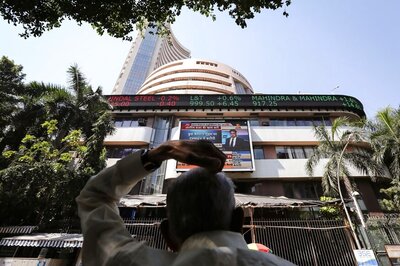
views
New Delhi: In a pre-pandemic world, leaders like Donald Trump, Boris Johnson and Narendra Modi were already discarding ideals of globalisation and propelling nationalist interests. The arrival of coronavirus has inadvertently accelerated their agendas. With closed borders, restrictions on international travel, and each country fighting for itself to deal with the deadly virus, it is increasingly becoming clear that local agendas will take centre stage from now on.
However, the Congress MP from Thiruvananthapuram, Shashi Tharoor and President of Observer Research Foundation (ORF), Samir Saran, who have together co-authored a book titled The New World Disorder and the Indian Imperative, stated in an article that although several countries might use this international public health emergency to recoil from globalisation, India must fight such impulses.
The book, The New World Disorder and the Indian Imperative written by Tharoor and Saran has proved to be eerily prophetic, in the way the global governance has failed to contain the virus. In the book, the authors had specifically criticised the role of international organisations such as the United Nations which has failed time and again in mitigating crisis situations and had kowtowed to the pressures of its five permanent members, ignoring the interests of other nations.
Tharoor and Saran pointed out in their The Indian Express article that in the case of coronavirus too, world organisations failed to play their part fairly. The World Health Organisation (WHO), for instance, toed the official line of Chinese authorities and waited too long to sound the warning bells of coronavirus thereby pushing several other countries into a public health emergency mode. However, China wasn't made accountable by the United Nations for not taking quick actions and their initial attempts at repressing the news of the virus. On the contrary, China is now being applauded for sending medical help to countries like Italy.
Another interesting phenomenon that the book had very aptly observed is that as globalization is being confronted by nationalist economics in several countries, many strong leaders of the world are batting for their countries vested interest only. As the coronavirus claim several lives in the European subcontinent, Boris Johnson, who recently tested positive for Covid-19 himself, has been pushing for Brexit. So far, despite the cancellation of the immediate deadline for Brexit negotiation, the main deadline has not been extended.
On the other hand, Tharoor and Saran observe in their article that Trump is still on auto-play with his 'America First' narrative. As countries race to make vaccines for coronavirus, the President of The United States of America is already making efforts to source vaccine from Germany for Americans alone. Trump has repeatedly targeted China and termed coronavirus, as 'Wuhan virus' and stopped pharmaceutical imports from China.
The last part of Tharoor and Saran's book deal with all the imperative actions India should take in the future to evolve as 'a major global power'. It is very pertinent as the coronavirus spreads across the country to understand those imperatives. Currently, the main prerogative of the government, according to Tharoor and Saran should be to mitigate the distress of the poor and informal sector workers who are undoubtedly the worst hit by the pandemic. Tharoor and Saran propound that the government should take 'this crisis as an opportunity to resolve many socio-economic inequalities that plagues India.'
The Indian government did an excellent job of reaching out to the SAARC community at the onset of the outbreak and they should be equally proactive in dealing with the crisis now.
Tharoor and Saran propose that India should lead the way towards global cooperation during this worldwide crisis. It is through finding 'governmental solutions for developmental needs' can India become a true global power in future, and no better time to find such solutions than a public health emergency.
















Comments
0 comment